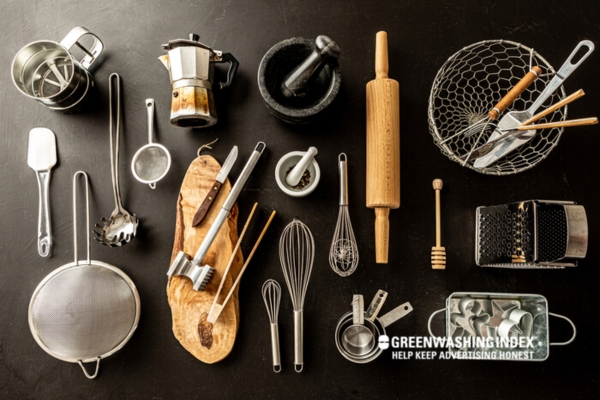

Waking up and knowing that each choice you make today could help preserve our planet. It’s a powerful feeling, right? Zero Waste In Daily Life is not just a trend; it’s a lifestyle that transforms how we interact with the world. Picture yourself shopping without plastic, cooking without waste, and living in harmony with nature.
This journey isn’t just about reducing trash—it’s about embracing a sustainable future. In this guide, we’ll explore practical ways to integrate this philosophy into your everyday routine. Let’s dive into the world of zero waste and make a difference, one step at a time.
Zero waste living centers on minimizing waste and its environmental impact. The core principles involve refusing unnecessary items, reducing consumption, reusing materials, recycling responsibly, and composting organic waste. This approach is crucial as it helps conserve resources and fosters a sustainable relationship with the environment.

By embracing zero waste living, we address significant issues like pollution and resource depletion, promoting a healthier planet for future generations. It’s about making mindful choices and engaging with our communities to create lasting positive change.
Adopting a zero waste lifestyle offers numerous benefits that contribute to environmental sustainability and personal well-being. This approach emphasizes reducing waste, reusing materials, and recycling products to minimize the impact on landfills and natural resources.
By making conscious choices, individuals can lead healthier lives while promoting a cleaner planet.
Key Benefits of Zero Waste Lifestyle:
Creating a zero waste home is all about making thoughtful choices that promote sustainability. By incorporating certain products into your home, you can significantly reduce your waste footprint. From kitchen essentials to office materials, each area of your home can benefit from eco-friendly alternatives.
Let’s explore some essential products that make zero waste living more achievable and practical.
Kitchen essentials are fundamental tools and equipment that enhance the cooking experience, making meal preparation more efficient and enjoyable. These items vary widely, catering to different cooking styles and preferences. Here are some key kitchen essentials that every home cook should consider:

A bathroom is an essential space in any home, primarily designed for personal hygiene and relaxation. It typically includes various fixtures such as a shower, bathtub, sink, and toilet. The design and functionality of bathrooms have evolved over time, reflecting changes in lifestyle and technology. Here are some key necessities commonly found in bathrooms:

Cleaning supplies are essential tools used to maintain cleanliness and hygiene in various environments, including homes, offices, and public spaces. These products help eliminate dirt, germs, and stains, contributing to a healthier living and working atmosphere. Below are some common types of cleaning supplies:

Office materials are essential tools and supplies used in various administrative tasks within an office environment. These materials facilitate productivity, organization, and communication among employees. Common office materials include stationery, furniture, and technology resources that support daily operations. Below is a list of typical office materials:

Changing daily habits is a powerful step in reducing waste effectively. Begin by being mindful of your consumption patterns. Before making a purchase, consider whether you truly need the item. This simple question can help curb impulse buying and reduce unnecessary waste. Incorporate reusable items into your routine, like shopping bags, water bottles, and utensils.
These small switches can lead to a significant decrease in single-use plastic consumption. Additionally, practice mindful eating. Plan meals to ensure you only buy what you’ll consume, minimizing food waste.
Composting organic scraps is another great way to divert waste from landfills. By making these adjustments, you’re not only reducing waste but also promoting a more sustainable lifestyle. Each change might seem small on its own, but collectively, they create a substantial impact on our environment.
Living a zero waste life isn’t just about what happens inside your home. It extends to all areas, including when you’re out and about or engaging with your community. By adopting zero waste habits everywhere, you contribute to a healthier planet.
Let’s explore how you can continue these practices while on the go and within your community.
Traveling doesn’t have to mean abandoning your zero waste goals. Begin by packing reusable essentials like utensils, water bottles, and cloth bags. These can help you avoid single-use items. When it comes to snacks, choose bulk options stored in reusable containers rather than individually packaged goods.
Accommodation choices also matter—consider staying at eco-friendly hotels or hostels that support sustainable practices. Researching local zero-waste shops before your trip can further help you minimize waste while exploring new places.
Being part of a community that cares about sustainability can amplify your zero waste efforts. Join local clean-up events to help keep your neighborhood clean and free from litter. Participating in workshops or groups focused on zero waste education can help you learn and share new strategies.
Supporting local businesses that prioritize eco-friendly practices can also make a difference. Encouraging local initiatives and spreading awareness fosters a community-wide commitment to reducing waste, creating a supportive environment for sustainable living.
Zero Waste In Daily Life isn’t just a trend; it’s a lifestyle choice that can significantly benefit our planet. By integrating zero waste practices, we contribute to a healthier environment and a more sustainable future. The journey may seem overwhelming, but even small changes can make a big difference.
From kitchen essentials to travel tips, every step counts. Remember, adopting a zero waste lifestyle is a testament to our commitment to reducing waste and conserving resources. Let’s continue to make mindful choices and inspire others to do the same.
If you found this helpful, explore more insightful blogs on our site to continue your journey toward sustainability.
